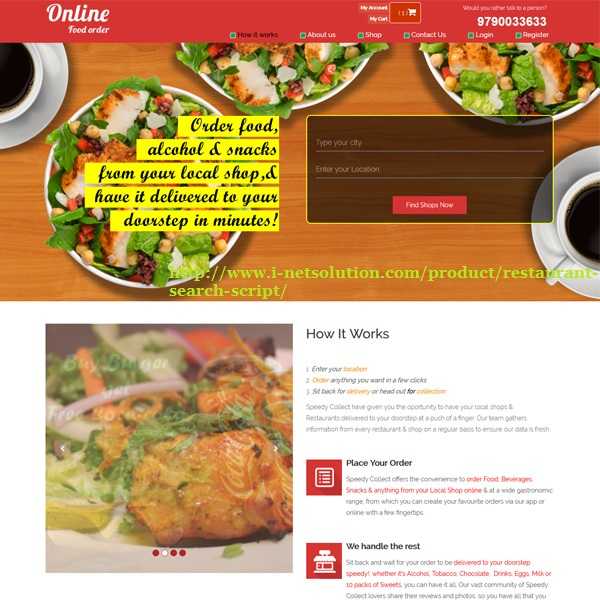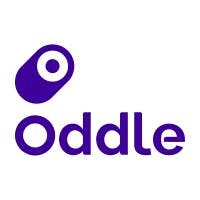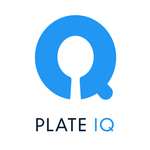Description

Advanced Just Eat clone

Oddle

Plate IQ
Comprehensive Overview: Advanced Just Eat clone vs Oddle vs Plate IQ
Certainly! Here's a comprehensive overview of an Advanced Just Eat clone, Oddle, and Plate IQ:
a) Primary Functions and Target Markets
Advanced Just Eat Clone
Primary Functions:
- Online Ordering System: Allows restaurants to offer an online platform for customers to place orders for delivery or pickup.
- Customer Management: Tools for managing customer data, insights, and feedback.
- Loyalty Programs: Capabilities to create loyalty and reward programs for returning customers.
- Payment Processing: Integration with various payment gateways for seamless transactions.
Target Markets:
- Primarily targets independent restaurants, small chains, and food delivery services looking to digitalize their ordering systems.
Oddle
Primary Functions:
- Online Ordering Platform: Provides a simple user interface for online orders, tailored for restaurants.
- Marketing Tools: Includes marketing, promotions, and CRM tools to boost online presence.
- Data Analytics: Offers analytics for sales, customer behaviour, and operational efficiency.
- Integration Capabilities: Easily integrates with existing restaurant POS systems and delivery logistics.
Target Markets:
- Focuses on restaurants, cafes, and eateries looking to enhance or wholly transition to online sales operations without relying on third-party delivery apps.
Plate IQ
Primary Functions:
- Accounts Payable Automation: Digitizes and automates invoice processing for restaurants, reducing manual data entry.
- Data Management: Provides a centralized platform for managing vendor relationships, payments, and invoice history.
- Spend Analytics: Tools to track spending patterns and optimize purchasing decisions.
- Document Management: Maintains digital records of all invoices and related documents.
Target Markets:
- Primarily targets restaurants, hospitality businesses, and any establishments dealing with numerous vendor transactions and needing accounts payable solutions.
b) Market Share and User Base
These companies cater to different needs in the food and restaurant industry, making direct comparisons of market share and user base somewhat challenging, but a general idea can be given:
-
Advanced Just Eat Clone: As a category, numerous SaaS companies offer Just Eat clone solutions, and many restaurants may self-host or use smaller local providers, making precise market share analysis difficult. The user base is extensive but fragmented as it includes startups and small businesses looking to establish a digital presence.
-
Oddle: Predominantly focuses on the Southeast Asian market and has gained significant traction among independent restaurants and medium-sized chains. Oddle has established itself as a prominent player in this niche, with thousands of restaurant clients across its operational regions.
-
Plate IQ: Holds a strong position in the North American market, targeting mid to large-sized restaurant groups and hospitality businesses. While not as publicly high-profile as consumer-facing platforms, Plate IQ has an extensive and concentrated user base with thousands of businesses using its automation services.
c) Key Differentiating Factors
Advanced Just Eat Clone
- Customization: Offers highly customizable options for businesses that want a tailored solution that reflects their brand identity.
- Cost-Efficiency: Often more cost-effective solutions for startups compared to signing with larger, third-party delivery services.
- Self-Hosting Option: Some clones allow full self-hosting, providing more control over the operational mechanics and data privacy.
Oddle
- Southeast Asian Market Focus: Strong understanding and adaptation to the local business dynamics in Southeast Asia.
- Integrated Marketing Tools: Provides built-in marketing features aimed at engagement and direct sales without heavy reliance on third-party apps.
- Community Support: Acts as a support network for small to medium-sized businesses looking to broaden their digital sales reach.
Plate IQ
- Focus on Back-End Automation: Specializes in automating the financial side of restaurant operations, ensuring efficiency and accuracy.
- Vendor and Spend Management Tools: Comprehensive suite for managing vendors and simplifying procurement processes.
- Potential Cost Savings: Through automation and insightful analytics, businesses can identify and cut down on unnecessary expenditures.
These products serve different aspects of food industry operations, with Advanced Just Eat clones and Oddle focusing on front-end customer interactions and market reach, while Plate IQ streamlines back-end financial processes.
Contact Info

Year founded :
Not Available
Not Available
Not Available
Not Available
Not Available

Year founded :
2014
+65-6717-1291
Not Available
Singapore
Not Available

Year founded :
2014
Not Available
Not Available
United States
http://www.linkedin.com/company/plate-iq
Feature Similarity Breakdown: Advanced Just Eat clone, Oddle, Plate IQ
When comparing advanced Just Eat clones with platforms like Oddle and Plate IQ, it's essential to look at their core features, user interfaces, and any unique offerings that distinguish them. Here's a breakdown based on these criteria:
a) Core Features in Common
-
Order Management: All these platforms offer features for managing customer orders, including viewing order details, updating order statuses, and communication with customers.
-
Menu Management: These platforms provide tools for restaurants to create, edit, and organize their menus, including adding images and descriptions, setting prices, and categorizing items.
-
Payment Processing: Integration with various payment gateways to handle secure transactions is common among these platforms.
-
Reporting & Analytics: Each platform offers some form of analytics dashboard or reporting tool to help restaurants track sales, understand customer behavior, and make data-driven decisions.
-
Customer Management: Basic CRM features are typically included, allowing businesses to store customer information and track order history for targeted marketing or improving customer service.
-
Multi-platform Support: Ensuring the platform is accessible on various devices such as desktops, tablets, and mobile devices, is a common feature to enhance usability.
b) User Interface Comparison
-
Advanced Just Eat Clone: Typically designed with a consumer-focused interface, emphasizing ease of use and intuitive navigation for end-users placing orders. The interface usually mirrors popular food delivery apps to capitalize on user familiarity.
-
Oddle: Known for simplicity and a clean interface that focuses on both the restaurant's branding and a seamless user experience. Oddle often allows customization to a high degree, enabling restaurants to have unique themes or layouts.
-
Plate IQ: While Plate IQ is more oriented towards back-end operations like invoice processing, it places emphasis on a streamlined and efficient user interface for restaurant staff, with dashboards that prioritize functionality over aesthetics.
c) Unique Features
-
Advanced Just Eat Clone:
- White-label Solutions: These clones often provide restaurants with fully branded apps and websites, allowing businesses to maintain their brand identity while using robust, existing technology.
- Third-Party Integrations: Advanced clones might offer integrations with marketing tools, loyalty programs, or additional food delivery marketplaces.
-
Oddle:
- Bespoke Features: Offers features tailored to unique dining experiences, such as pre-ordering for dine-in, event-based ordering, or integrated virtual kitchen support.
- Marketing Tools: Enhanced marketing efforts with features that include promotional campaigns, discount codes, and real-time updates on special offers.
-
Plate IQ:
- Invoice Management: A standout feature is its focus on automating back-office operations, notably through invoice capturing and processing, which helps with inventory and financial management.
- Expense Tracking: Detailed expense management features that are beneficial for restaurants looking to streamline their accounting and budgeting processes.
Each of these platforms brings something unique to the table, but they collectively share a commitment to enhancing the operational efficiency of restaurants while also providing a strong user experience. The choice among them would largely depend on the specific needs and business model of a restaurant.
Features

Not Available

Not Available

Not Available
Best Fit Use Cases: Advanced Just Eat clone, Oddle, Plate IQ
When analyzing the best fit use cases for an Advanced Just Eat clone, Oddle, and Plate IQ, we need to consider the unique offerings and target customers of each platform. Here's a breakdown of their ideal applications:
a) Advanced Just Eat Clone
Ideal for:
- Restaurant Chains and Franchises: Businesses looking to establish an online food ordering and delivery presence can benefit significantly. The clone offers customizable solutions for restaurants wanting to replicate the Just Eat model.
- Start-ups in the Food Tech Industry: Entrepreneurs aiming to enter the online food delivery market with a proven model can use such a clone to save on development time and costs.
- Local Delivery Companies: Firms wanting to expand their offerings from just logistics to food delivery services specifically.
- Multi-vendor Marketplaces: Those who wish to build platforms that aggregate multiple restaurants into a single ordering hub.
b) Oddle
Ideal for:
- Individual Restaurants and Cafes: Oddle provides an effective and simple way for single-location eateries to manage online orders without paying high commission fees to larger portals.
- Small to Medium Restaurant Groups: These businesses can utilize Oddle to facilitate direct customer relationships and improve brand loyalty through personalized services.
- Events and Catering Services: Oddle is advantageous for companies focusing on pre-orders and delivering customized catering services for events, due to its robust order management and logistics features.
- Businesses Wanting Custom Solutions: It provides flexible customizations that allow restaurants to tailor their online presence according to their unique needs.
c) Plate IQ
Ideal for:
- Restaurant Chains and Large F&B Enterprises: Entities that handle substantial amounts of invoices and require automation in accounts payable will find Plate IQ beneficial for streamlining their operations.
- Catering and Hospitality Groups: Businesses dealing with extensive vendor networks and needing efficient invoice management and approval workflows can leverage Plate IQ's capabilities.
- Hospitality Groups Seeking Cost Control: Hotels and resorts that want to better manage food costs and optimize procurement processes.
- F&B Financial Teams: Financial departments in the food and business industry focused on detailed analytics and insights for financial forecasting and budgeting.
d) Catering to Different Verticals and Company Sizes:
- Advanced Just Eat Clone: This option is versatile and scalable, making it suited for entrepreneurs and medium-sized companies within the food delivery and tech space looking to quickly build or expand a food delivery network.
- Oddle: Primarily targets small to medium-sized restaurants and cafes, enabling them to enhance their direct online ordering capabilities. It accommodates businesses that prioritize maintaining control over their customer interactions without high commission fees.
- Plate IQ: Primarily targets larger food & beverage operations and hospitality groups that require significant automation in their financial and procurement processes. It serves businesses where administrative efficiency and cost reduction are key priorities.
Each tool's distinct focus on different aspects of the food service industry means that the best choice depends on specific business needs, operational scale, and strategic goals.
Pricing

Pricing Not Available

Pricing Not Available

Pricing Not Available
Metrics History
Metrics History
Comparing undefined across companies
Conclusion & Final Verdict: Advanced Just Eat clone vs Oddle vs Plate IQ
To provide a conclusion and final verdict on Advanced Just Eat Clone, Oddle, and Plate IQ, it's essential to consider the distinct functionalities and value propositions each platform offers, alongside their respective pros and cons. Here's a breakdown of each:
a) Best Overall Value
Oddle generally presents the best overall value for businesses primarily seeking a robust online ordering system and a comprehensive suite of features tailored specifically for the food and beverage industry. Its focus on order management, marketing, and customer relationship management (CRM) offers more than just a clone or replication service, allowing businesses to truly enhance their customer engagement and operational efficiency.
b) Pros and Cons
Advanced Just Eat Clone
Pros:
- Customizability: As a clone script, it allows for extensive customization to suit specific business needs.
- Cost-Effective: Generally more affordable for businesses that need a quick start without extensive bespoke development.
- Familiar Interface: Mimics the Just Eat platform, which can be advantageous for user adoption.
Cons:
- Limited Innovation: Being a clone, it is often limited in terms of innovative features unless further custom development is pursued.
- Quality Variability: The effectiveness and quality of the clone can greatly vary depending on the provider.
Oddle
Pros:
- Industry-Specific Features: Offers features tailored specifically to the F&B sector such as CRM, marketing tools, and extensive analytics capabilities.
- Seamless Integration: Easily integrates with existing POS systems and offers a good level of scalability for businesses of various sizes.
- User-Friendly: Provides an intuitive interface for both customers and restaurant operators.
Cons:
- Pricing: May be more expensive compared to basic clone solutions due to its breadth of features and value-added services.
- Specific to F&B: Primarily targets food and beverage sectors, limiting its applicability for other types of businesses.
Plate IQ
Pros:
- Automation and Efficiency: Offers automation tools focused on invoicing and accounts payable, enhancing back-office efficiency.
- Comprehensive Financial Solutions: Provides detailed insights into cost control, financial management, and operational efficiencies.
Cons:
- Niche Focus: Specializes more in financial operations rather than consumer-facing order management, which might be a limitation for businesses looking for a complete ordering solution.
- Learning Curve: May require more time and effort to fully integrate into existing financial systems, potentially creating a steeper learning curve.
c) Recommendations
-
For Businesses Seeking an All-in-One F&B Solution: Oddle is recommended. It provides a comprehensive platform ideal for F&B businesses looking to enhance their online presence while benefiting from integrated CRM and marketing tools.
-
For Businesses Needing Quick Customizable Launch: Consider the Advanced Just Eat Clone if you are looking to rapidly establish a presence with a familiar interface and are willing to invest in further custom development as needed to differentiate your platform.
-
For Businesses Focused on Financial Operations: Opt for Plate IQ if your priority is streamlining financial processes and achieving more automated back-end efficiency rather than customer-facing solutions.
Ultimately, the choice will depend on the specific priorities of the business—whether it's enhancing customer interaction, rapid deployment with customization, or optimizing financial operations. Scaling needs, budget considerations, and industry specifics are fundamental in determining the most suitable platform.